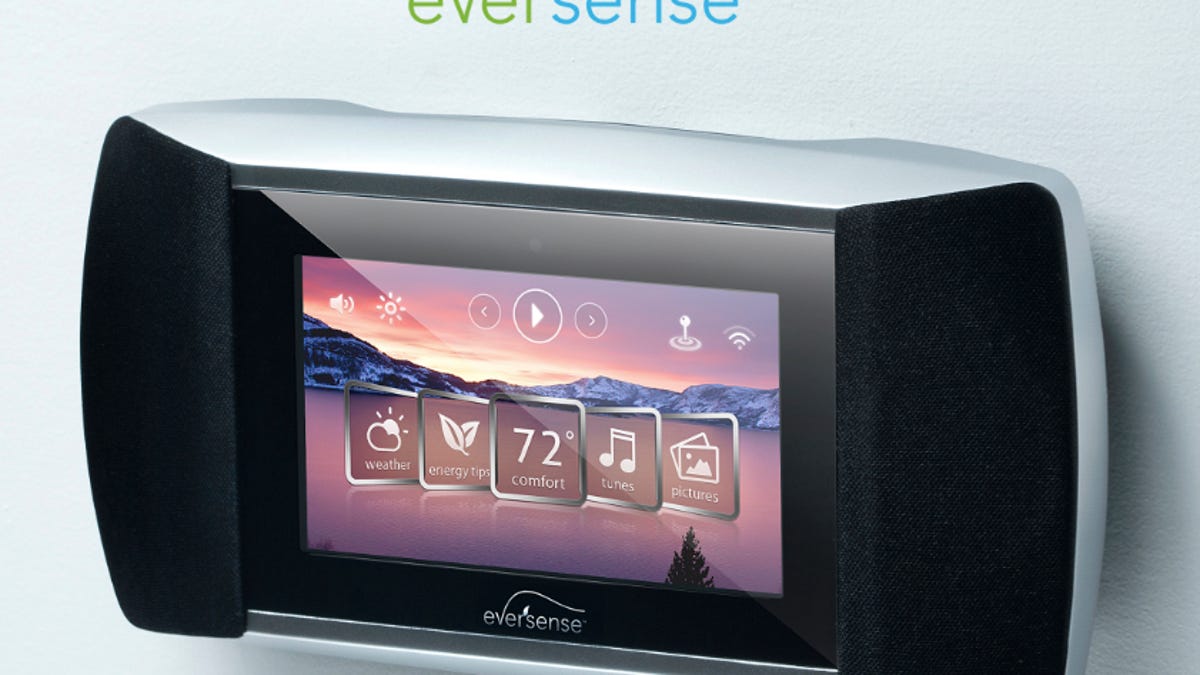Eversense: A programmable thermostat based on real-time behavior
Designed to react to people's actual behavior and not algorithms, the Eversense adjusts a home's heating or cooling based on when the last person leaves and the first person comes home.

LAS VEGAS--Ever since the launch of the Nest in 2011, programmable thermostats have become one of the hottest in-home technologies.
With its Apple-inspired interface and design, Nest gets the lion's share of the attention, but new competitors are hoping to steal some of the thunder. At CES 2013 here, Austin, Texas-based Allure Energy is hoping to join the party with Eversense programmable thermostat.
Eversense, which works on iOS and Android, is meant to give users the ability to automatically control their thermostats, not based on learned behavior, but on what they're doing in real time. The idea, explained Vice President of Business Development Jim Mills, is that people's behaviors change from day to day. So, the system is designed to turn off heat or air conditioning when the last person in a household has left for the day -- as determined by the last mobile phone leaving -- and so that the first person to come home returns to "an ideal environment."
Essentially, users can set up a proximity zone and when they cross into it with their phone -- say, 10 miles from home -- Eversense knows and sets the home heating or cooling system based on that person's preset preferences.
Because traffic patterns and travel time vary from person to person, the system lets individual users define their own proximity zones.
The $349 Eversense is expected to go on sale sometime in the first quarter and is meant to replace a home's wall thermostat. Mills said that most people should be able to install it themselves, and the company offers tutorial videos that show how to do so.
Asked why someone would choose the Eversense over Nest, Mills pointed out that while Nest is meant to adjust to people's regular patterns, life isn't actually all that regular. "What if I don't know my schedule for tomorrow or next week?" Mills asked. Eversense is built on that premise -- that people's lives are unpredictable and that a programmable thermostat should make its adjustments not on algorithms, but on actual behavior.

